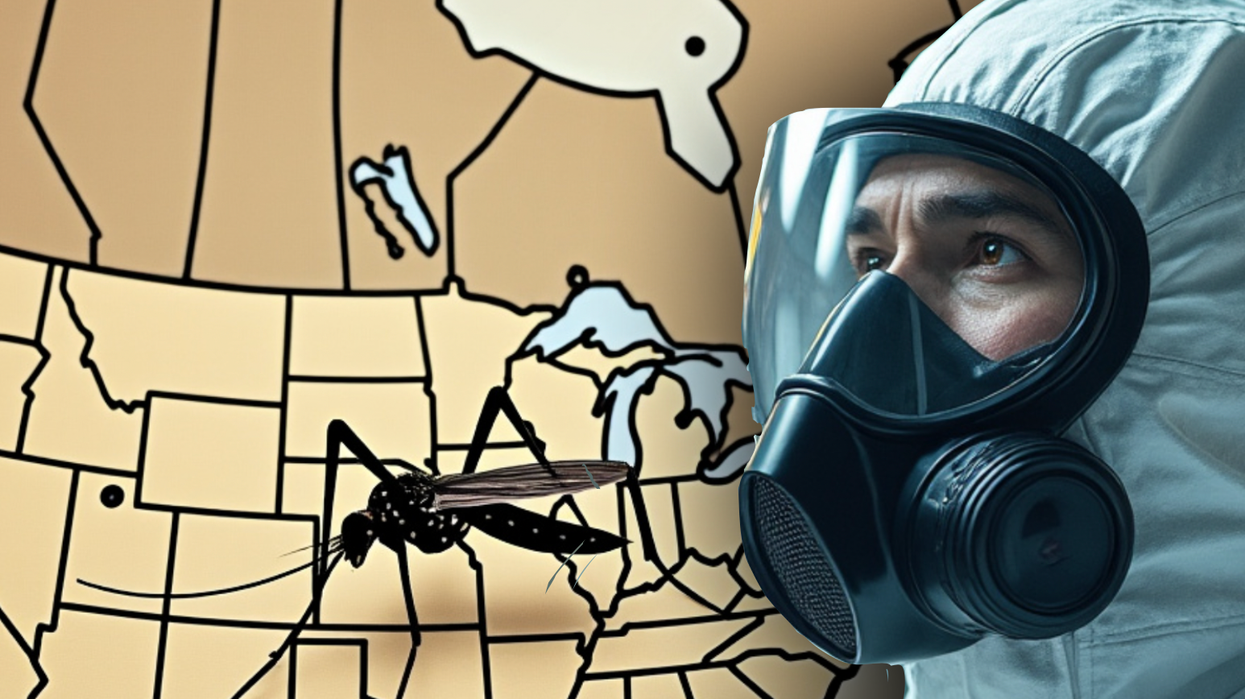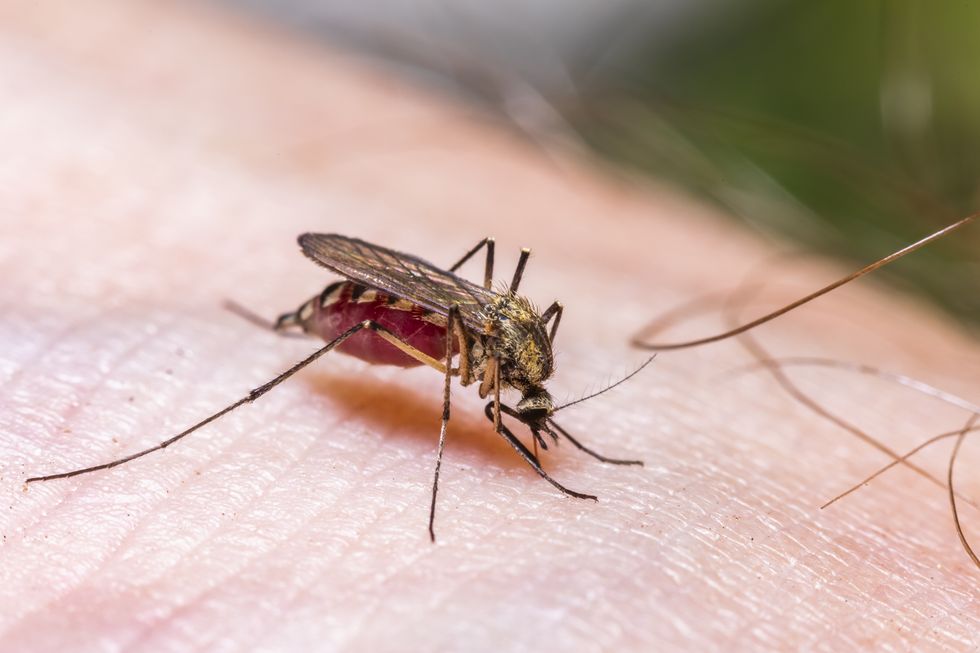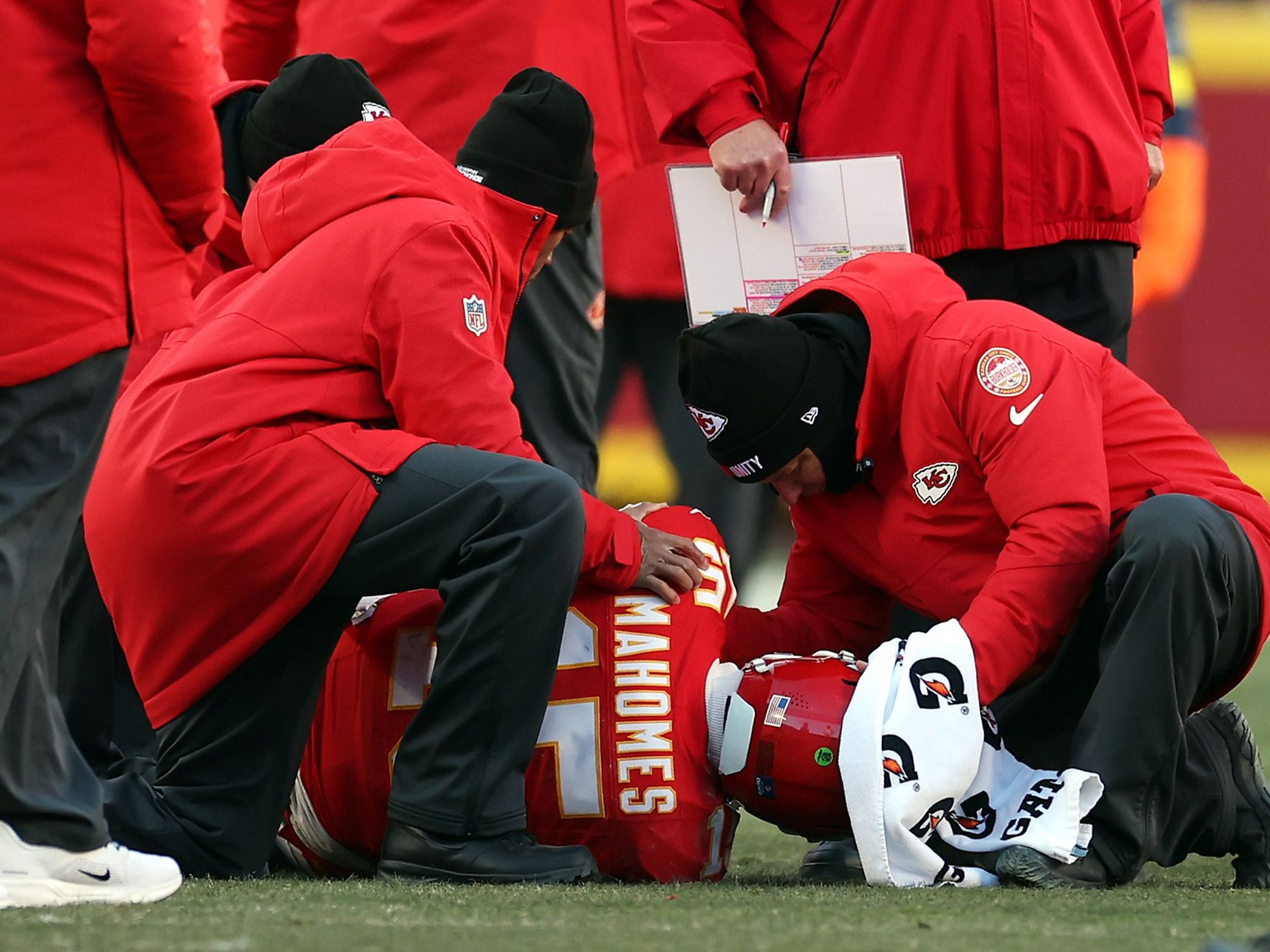Health warning as New Hampshire man dies from mosquito virus that kills one in three...US towns face closures

Curfews and park closures to be introduced after eastern equine encephalitis kills New Hampshire man
|Grok

Steven Parry, 41, had been hospitalised due to severe central nervous system symptoms
Don't Miss
Most Read
A man from New Hampshire has died from a rare mosquito-borne disease that's prompted dozens of US towns to introduce curfews and closures.
Steven Parry from Hempstead -- a town near the southeastern border with Massachusetts -- died within one week of testing positive for eastern equine encephalitis virus (EEE), a rare but serious brain-swelling disease caused by a virus that's spread to humans and other animals through the bite of an infected mosquito.
The 41-year-old medical worker, who had no previous health conditions, had been hospitalised due to severe central nervous system symptoms, the state's health department said.
About a third of people who develop encephalitis from the virus die from the infection, which can cause symptoms such as fever, vomiting, diarrhoea and seizures.
There is no vaccine or medicine to treat EEE, and many survivors have ongoing neurological problems.

It spreads to humans through the bite of an infected mosquito
| GETTYMr Parry's death comes as health authorities in neighbouring Massachusetts announce emergency measures to curb the spread of the mosquito-borne infection.
Several towns have urged people to avoid going outdoors at night and closed parks, playgrounds and other public spaces, where mosquitos are most active.
State authorities have begun spraying in some communities to prevent the spread.
Outbreaks of EEE usually involve many horse cases and few human cases, which mostly occur along the East Coast
Nationally, cases vary from year to year. According to the U.S. Centers for Disease Control and Prevention (CDC), the US records an average of 11 human cases per year.
There were seven cases nationally last year, but 2019 and 2020 were particularly bad, with 17 cases and seven fatalities recorded.
So far this year, human infections of EEE have been confirmed in New Jersey, Wisconsin, Massachusetts and Vermont.
Public health authorities in states where mosquito-borne infections happen encourage people to take precautions, preventing mosquito bites by using repellent, wearing long sleeves and pants and avoiding outdoor activity in the early morning and evening when mosquitoes are most active. Removing standing water where mosquitoes breed is also an important measure.
Also known as Triple E or sleeping sickness, EEE first appeared in Massachusetts in 1831 when 75 horses died mysteriously.
The virus is spread by infected mosquitoes, often found in freshwater hardwood swamps, and infects some avian hosts in aquatic habitats.
Several mosquito species have also been implicated as vectors of the disease.
LATEST HEALTH DEVELOPMENTS

Sloth fever, which is endemic to South America, is spreading outside the region for the first time
| Getty ImagesAlthough human-to-human transmission is extremely uncommon, EEE is deadly, with those who contract it dying usually around 10 days after being bitten.
There is no specific treatment for EEE) but supportive care can help relieve symptoms and prevent other infections.
Treatment may include:- Rest and fluids
- Over-the-counter pain medicines
- Intravenous fluids
- Nursing care
- Antibiotics
- Antiemetic therapy Respiratory support
It comes amid the spread of several mosquito-borne viruses this summer. In an exclusive GB News investigation this week, we look at the spread of sloth fever - a deadly infectious disease endemic to South America that's spread to Europe and America for the first time.










